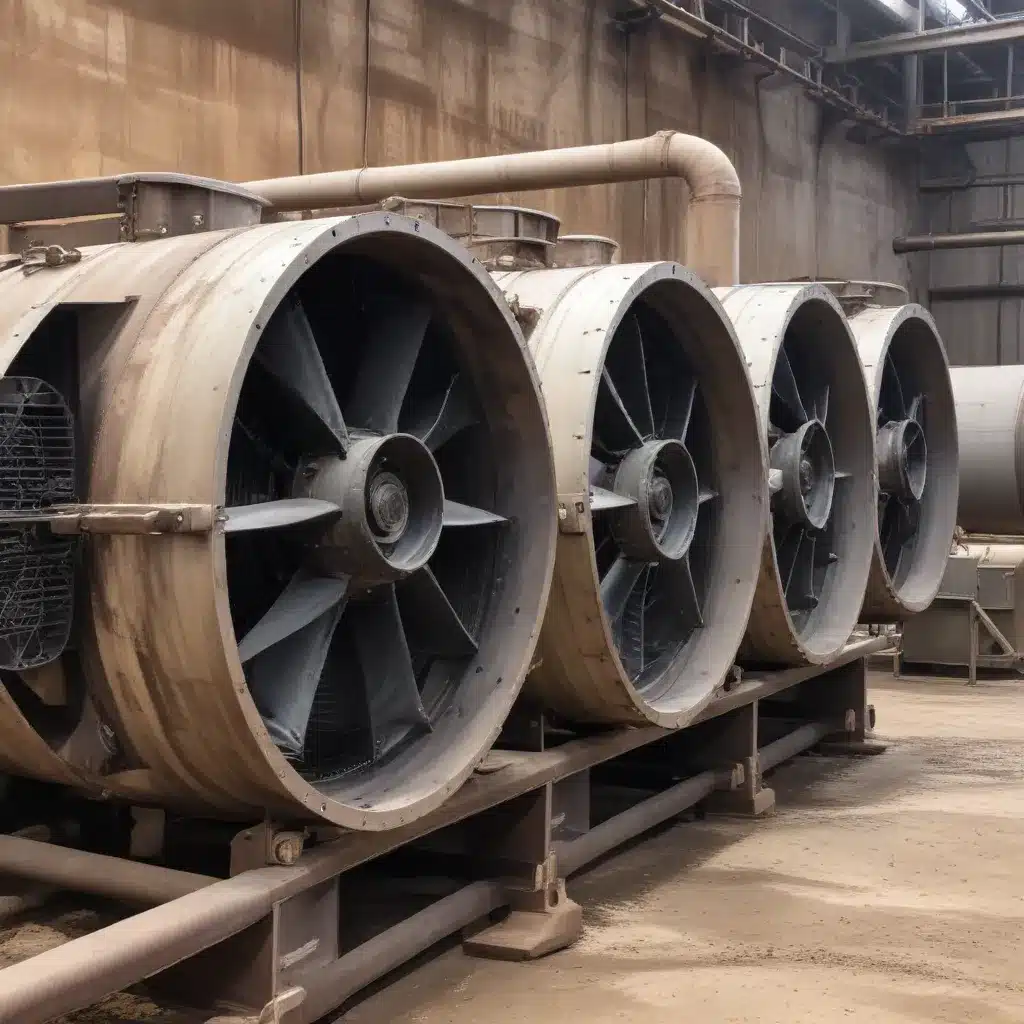
In the mining, minerals, and metals processing industries, air-cooled heat exchangers play a crucial role in maintaining efficient operations, process reliability, and energy conservation. These robust heat transfer workhorses are tasked with handling some of the toughest operating conditions, including frequent fouling from dirty media, high pressure drops, and space constraints. Implementing effective maintenance strategies is essential to ensuring the optimal performance, longevity, and cost-effectiveness of these critical assets.
Overcoming Fouling and Clogging Challenges
One of the primary maintenance challenges with air-cooled heat exchangers in these industries is the issue of fouling and clogging. The process streams often contain high levels of particulates, minerals, and other contaminants that can gradually build up on the heat transfer surfaces, reducing thermal efficiency and increasing pressure drop.
Traditional shell-and-tube heat exchangers are particularly susceptible to this problem, as the parallel flow paths can lead to uneven fouling and clogging of individual tubes. This can quickly escalate, forcing the equipment to be taken offline for extensive cleaning and maintenance.
Alfa Laval’s spiral heat exchanger technology offers a unique solution to this challenge. The single-channel design and continuous spiral flow create a “self-cleaning” effect, where any buildup of deposits is continuously flushed away by the high-velocity fluid stream. This dramatically reduces the risk of fouling and clogging, minimizing the need for frequent cleaning and maintenance.
“We use these units because they’re very strong and very easy to clean and of course because the thermal efficiency is high.” – Francisco Tarmago, Technology Manager, Asturiana de Zinc
Furthermore, the compact and robust design of Alfa Laval’s spiral heat exchangers often allows several large shell-and-tube units to be replaced by a single spiral exchanger, providing significant benefits in terms of reduced infrastructure requirements, maintenance needs, and overall operating costs.
Optimizing Thermal Efficiency and Energy Consumption
In the energy-intensive mining, minerals, and metals processing industries, maximizing the thermal efficiency of heat exchangers is crucial for reducing energy consumption and operating costs. Air-cooled heat exchangers play a vital role in this regard, serving as the primary means of rejecting excess heat from various process streams.
Regular maintenance and optimization of these heat exchangers can have a significant impact on their thermal performance and energy efficiency. Tasks such as cleaning the heat transfer surfaces, inspecting and replacing worn components, and ensuring proper air flow can all contribute to improved heat transfer rates and reduced energy usage.
Alfa Laval’s welded heat exchanger designs are engineered to deliver exceptional thermal performance and reliability, with innovations that enhance energy efficiency and heat recovery. Their spiral heat exchanger models, in particular, are known for their close temperature approach and counter-current flow, allowing for maximum thermal efficiency.
By implementing a comprehensive maintenance program tailored to the specific requirements of air-cooled heat exchangers, mining, minerals, and metals processing facilities can unlock significant energy savings and reduce their carbon footprint, contributing to improved sustainability and environmental stewardship.
Ensuring Mechanical Integrity and Reliability
In addition to thermal efficiency and fouling resistance, the mechanical integrity and reliability of air-cooled heat exchangers are also critical considerations in these industries. The equipment often operates under harsh conditions, such as high pressures, vibrations, and thermal stresses, which can lead to premature failures if not properly maintained.
Alfa Laval’s spiral heat exchangers are designed with several features that enhance their mechanical strength and reliability, including:
- Circular shell design and self-supporting internal coil: This construction improves the heat exchanger’s ability to withstand high pressures and mechanical stresses.
- Automated bending and welding processes: The closed-channel design ensures consistent quality and reliability, reducing the risk of leaks or failures.
Implementing a robust maintenance program that includes regular inspections, vibration monitoring, and proactive component replacement can help ensure the long-term reliability and availability of air-cooled heat exchangers in these demanding applications.
Maximizing Uptime and Productivity
Downtime for maintenance and repairs can be particularly costly in the mining, minerals, and metals processing industries, where production schedules are often tightly optimized and any interruptions can have a significant impact on overall productivity and profitability.
To minimize the risk of unplanned outages, it is essential to develop a comprehensive maintenance strategy for air-cooled heat exchangers that prioritizes preventive and predictive maintenance measures. This may include:
- Scheduled inspections and cleaning: Regularly inspecting the heat exchanger for signs of fouling, corrosion, or mechanical wear, and performing proactive cleaning to maintain optimal performance.
- Vibration monitoring: Continuously monitoring the vibration levels of the heat exchanger’s rotating components, such as fans, to detect potential issues before they lead to failures.
- Condition-based maintenance: Leveraging advanced analytics and predictive maintenance techniques to anticipate when components may need to be replaced, allowing for planned downtime and minimizing unexpected breakdowns.
Alfa Laval’s service agreements can also play a crucial role in maximizing the uptime and productivity of air-cooled heat exchangers. These tailored service solutions combine a range of maintenance services, from routine inspections and cleaning to on-site support and remote monitoring, to ensure optimal performance and reliability.
By implementing a proactive and data-driven maintenance approach, mining, minerals, and metals processing facilities can minimize unplanned downtime, optimize their production schedules, and maintain a competitive edge in the market.
Conclusion
Effective maintenance strategies for air-cooled heat exchangers are essential in the mining, minerals, and metals processing industries, where these critical assets operate under demanding conditions and play a vital role in maintaining efficient, reliable, and sustainable operations.
From addressing fouling and clogging challenges to optimizing thermal efficiency and ensuring mechanical integrity, a comprehensive maintenance program can unlock significant benefits in terms of cost savings, energy conservation, and productivity improvements.
By partnering with industry-leading providers like Alfa Laval and leveraging their expertise, advanced technologies, and tailored service solutions, mining, minerals, and metals processing facilities can confidently overcome the unique maintenance challenges they face and position themselves for long-term success in the increasingly competitive global marketplace.

